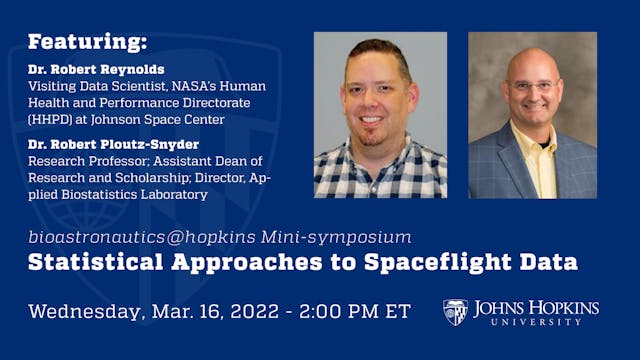The (Un)known-(Un)knowns of COVID-19 Transmission - An Engineer's Perspective
Science, Engineering, & Technology
•
50m
COVID-19 spread across the world with a speed and intensity that laid bare the limits of our understanding of the transmission pathways of such respiratory diseases. After much confusion and misinformation, there emerged a consensus that airborne transmission from very small respiratory droplets is the most important route for the spread of COVID-19. Each stage in this transmission pathway is mediated by complex flow phenomena, ranging from air-mucous interaction inside the respiratory tract, turbulence in the exhaled jet/ambient flow, to inhalation and deposition of these aerosols in the lungs. Given the emergence of the Delta-variant and the resurgence of infections in many communities, the importance of communicating infection risk across scientific disciplines, as well as to policy/decision makers, is more important than ever. Inspired by the Drake Equation that provides a framework to estimate the seemingly inestimable probability of advanced extraterrestrial life, I propose a relatively simple model for estimating the risk of airborne transmission of a respiratory infection such as COVID-19. The model couples ideas from fluid dynamics with factors involved in airborne transmission and predicts the effects of social distancing and facemask use on transmission risk. The model is designed to serve not only as a common basis for scientific inquiry across disciplinary boundaries, but to also be understandable by a broad audience outside science and academia.
Up Next in Science, Engineering, & Technology
-
Statistical Approaches to Spaceflight...
From the bioastronautics@hopkins Mini-Symposium. Speakers include Dr. Robert Reynolds, current visiting data scientist at NASA’s Human Health and Performance Directorate, and Dr. Robert Ploutz-Snyder, Assistant Dean of Research and Scholarship, at the University of Michigan School of Nursing. Plo...
-
Space for All – Opening Spaceflight t...
Hopkins at Home and Bioastronautics @ Hopkins, introduced and moderated by Dr. Mark Shelhamer (Director of the JHU Human Spaceflight Lab). This session will focus on making space travel inclusive for people with disabilities and features Dr. Sheyna Gifford, Sarah Hasnain, and Dr. Bonnielin Swenor...
-
Showcase Series: The Future of Artifi...
Brought to you by Hopkins at Home and the Office of Government, Community and Economic Partnerships.
Alexis Battle
Director, Malone Center for Engineering in Healthcare; Associate Professor of Biomedical Engineering and Computer Science.
Alexis Battle is an associate professor in biomedical en...



